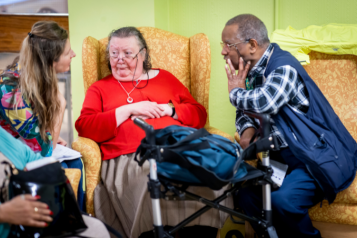Making a complaint about social care services

Informal
Raise your issues informally with a worker, team, or manager, responsible for the service you are unhappy with. They may be able to put things right if something has gone wrong and resolve your complaint informally.
Formal
There are two routes for raising formal complaints, this will depend on who is paying for your care:
If the local authority are paying for or towards your care:
The route for raising a formal complaint is direct to the local authority. You can do this by post, phone or email
Go to more information from Coventry City council including contact details for raising complaint
You will be contacted within three working days to confirm the complaint has been received and explain how it will be investigated. You should get a response within 20 working days.
In your response, the investigator will put at the bottom of the letter what the next steps are if you are unhappy with your complaint. This could be to contact the Local Government Ombudsman.
If you are paying for your own care:
If you arrange and pay for your own care and support services, without receiving any help from the local authority, you will need to complain using the care provider’s complaints procedure.
You can ask the care provider for information about their complaints process.
If you cannot resolve the issue using the provider’s procedure, you can ask the Local Government and Social Care Ombudsman to consider your complaint.
Advocacy Support for people who do not have capacity or are vulnerable
Advocacy is when a person, called an advocate, speaks or acts on your behalf and would be independent of the council. Advocacy means having someone who will express your views and wishes, secure your rights and represent your interests.
Advocacy safeguards people who are vulnerable by speaking up for them and is there to represent your interests. It enables people with physical or learning disabilities, older people and those with mental health needs to make informed choices and decisions about their own health and social care.
Local Government and Social Care Ombudsman (LGO)
If a complaint is not resolved to your satisfaction by the local authority, you can complain to the Local Government and Social Care Ombudsman (LGO). They can investigate individual complaints about councils, all adult social care providers (including care homes and home care agencies) and some other public service organisations. If they decide to investigate, they look at whether organisations have made decisions the right way. The LGO do not investigate a decision simply because you disagree with it. There must be maladministration in the way the local authority has acted, or failed to act, leading to injustice.
Maladministration involves failings in the way an action or decision has been taken by the local authority, or where it has not taken action when it ought to have done. This can include:
- unjustified delay
- unfair discrimination
- failure to abide by agreed procedures
- failure to have proper procedures in place
- failure to understand or carry out legal duties
- treatment that does not have regard to wellbeing or dignity
- failure to respect human rights.
Please note that the LGO expect you to have followed the local authority complaints procedure first, so they have had a chance to put things right.

Care Quality Commission
You can also contact The Care Quality Commission to share your experiences of a particular provider. They do not investigate individual complaints, but it will be useful intelligence for when they do go out and inspect the service.
There is an online form for you to complete or you can telephone them on
03000 616161


